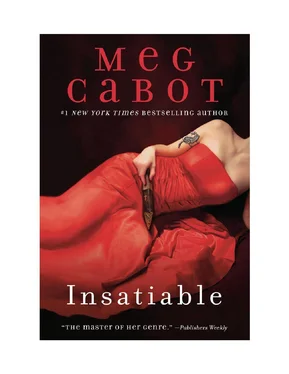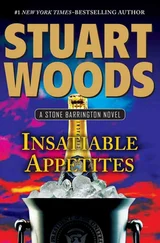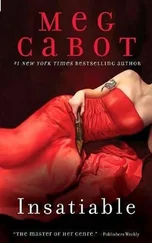Insatiable
Здесь есть возможность читать онлайн «Insatiable» весь текст электронной книги совершенно бесплатно (целиком полную версию без сокращений). В некоторых случаях можно слушать аудио, скачать через торрент в формате fb2 и присутствует краткое содержание. Жанр: Книги. Описание произведения, (предисловие) а так же отзывы посетителей доступны на портале библиотеки ЛибКат.
- Название:Insatiable
- Автор:
- Жанр:
- Год:неизвестен
- ISBN:нет данных
- Рейтинг книги:4 / 5. Голосов: 1
-
Избранное:Добавить в избранное
- Отзывы:
-
Ваша оценка:
- 80
- 1
- 2
- 3
- 4
- 5
Insatiable: краткое содержание, описание и аннотация
Предлагаем к чтению аннотацию, описание, краткое содержание или предисловие (зависит от того, что написал сам автор книги «Insatiable»). Если вы не нашли необходимую информацию о книге — напишите в комментариях, мы постараемся отыскать её.
Insatiable — читать онлайн бесплатно полную книгу (весь текст) целиком
Ниже представлен текст книги, разбитый по страницам. Система сохранения места последней прочитанной страницы, позволяет с удобством читать онлайн бесплатно книгу «Insatiable», без необходимости каждый раз заново искать на чём Вы остановились. Поставьте закладку, и сможете в любой момент перейти на страницу, на которой закончили чтение.
Интервал:
Закладка:
But by tomorrow, he’d have another speech ready for her, about how she belonged with
the Palatine.
And when she came the next day—and she would; he knew she would—he’d have
another.
And eventually, he’d wear her down. That’s how the old Alaric Wulf magic worked.
And even if the Alaric Wulf magic didn’t exist—Martin often said it didn’t—one of
these days, they were going to have to let him out of traction, and he was going to stumble into
some more danger.
And then she wasn’t going to be able to resist warning him to stay out of it.
And that’s when he’d point out, with the kind of brilliant and in-arguable logic for which
he was so widely known, that she might just as well get paid to do this for a living.
She would be powerless in the face of such superior intellectual reasoning.
“Okay,” Meena said. She smiled and reached out to run her finger over some of the razor
stubble on his cheek. He was careful to keep very still while she did this, so she wouldn’t stop.
This was another example of how the Alaric Wulf magic worked. “I’ll see you tomorrow.”
Unfortunately, that was when she turned around and left.
But his hospital room didn’t seem nearly as unbearable to Alaric after that as it had
before she’d come to pay her visit.
In fact, suddenly it felt downright cheerful.
Alaric didn’t think this was the result of powerful neurotransmitters, such as dopamine,
being released in his brain.
He decided it was because of the daisies.
Alaric probably would have felt completely differently if he’d had the slightest idea
about where Meena Harper was going…that his speech about not sleeping in windowless
rooms had convinced her, not that she had to join the Palatine Guard to help him battle the
forces of evil, but that she had to go, as soon as she left the hospital, to the single place that
most terrified her and to which he’d made her promise not to go at all.
Chapter Sixty-one
8:00 P.M ., Friday, April 23
910 Park Avenue, Apt. 11B
New York, New York
M eena wasn’t sure what made her go back to her apartment.
Everyone told her not to. Alaric, who’d been there and seen the horrific destruction for
himself. Abraham Holtzman, referring to his handbook about post-traumatic stress disorder
and how it would only make hers worse. Sister Gertrude, who was practical and kind about
these things.
Even Jon, who’d been there, too, to see if he could salvage any of his own things.
“It’s awful,” he’d said with a shudder. “Trust me. You don’t want to know.”
But Meena did want to know. Ever since that night…
She tried not to think about that night. She didn’t want to think about it because every
time she started to, the tears came, and with them the conviction that Lucien was dead.
He had to be dead.
And then came the horrible hollow sensation in the middle of her chest….
And then, just as terrible, the fear that he wasn’t dead. What if he wasn’t dead, and still
loved her, and wanted them to be together?
Which was worse?
The fact that she didn’t know was what made her decide she couldn’t think about it at
all. Just not at all.
Not thinking about it was easier than anyone might have imagined. Every time she
started to think about it, she just shoved all thoughts, all memories, anything and everything
connected to Lucien Antonescu from her mind and thought firmly about something else.
She kept herself so busy at St. Clare’s that she didn’t really have time to think about
Lucien. There were the dishes to do after every meal, the pots and pans and casserole dishes
piled high in the in the rectory kitchen sink. Cleaning them was Meena’s penance for the burns
everyone had sustained because of her. She scoured them until they gleamed, sometimes late
into the night, just her, alone in the kitchen, with the sponge and her rubber gloves and the hot
soapy water.
And the darkness beyond the window over the sink.
And the glowing red eyes she was convinced she could see burning through that
darkness, watching her every move.
She tried not to think about the eyes, and if they were really there, or if she was just
imagining them.
There was the soup kitchen to help run, the donations to the thrift shop to help sort
through. (The thrift shop was where she’d found her new black dress, among many other
additions to her wardrobe. She understood that the donations were meant to be sold in the
store. But helping herself to one or two things as she sorted didn’t seem like the biggest crime.
Everything she owned had been either destroyed by the Dracul or soaked in Alaric Wulf’s
blood.)
But maybe she’d kept herself a little too busy not thinking about Lucien Antonescu
(those eyes, burning through the darkness outside the kitchen windows) and what had
happened that night.
Because until Alaric’s speech about how wrong it was for people like them to shut
themselves off from the scary things in the world instead of fighting them—and he was right,
she knew: she absolutely believed that the two of them were alike, he with his sword, and she
with her ability to predict danger and death—Meena had thought she’d been doing the right
thing by refusing to let herself think about Lucien.
But after Alaric’s eye-opening speech, she realized this was wrong.
She had a moral obligation not only to think about Lucien but to face him, and what he’d
done to her and to her life.
Which was destroy it.
If he was even alive, of course. She still didn’t know whether or not he was
(except…those eyes ). No one seemed to be able to tell her. Abraham would say only that after
that last blast of white-hot fire in the church—which had knocked him and everyone else
unconscious for a few seconds—he woke to find the prince gone.
“ Gone? ” Meena had asked, finding it hard to believe that a thirty-ton, seventy-foot redwinged dragon could simply disappear into thin air, the way Emil and Mary Lou Antonescu
had.
“Gone,” Abraham had replied with a nod.
Lucien hadn’t flown off. The cathedral’s roof, it was true, had burned down with the rest
of the building, but no one had reported seeing any winged dragons taking flight across
Manhattan that night. (The NYPD had put what happened at St. George’s down to teen
arsonists, thanks in large part to the vague statements Meena and Alaric had given them. But of
course, no teen arsonists had been arrested.)
So where was he?
Maybe, Meena thought as she approached her building that rainy evening after her visit
to Alaric Wulf’s hospital room, her keys pressed firmly in her hand, he had simply selfimploded. That last explosion of white-hot fire, from which he had tried so assiduously to
protect her, had been Lucien spontaneously combusting.
At least this way, she thought as the automatic doors to her building opened in front of
her, she didn’t have to worry anymore about his still loving her. And asking her, as Alaric had
suggested back in his hospital room, to go away with him.
And then killing her and making her one of his kind so that they could be together
forever.
Читать дальшеИнтервал:
Закладка:
Похожие книги на «Insatiable»
Представляем Вашему вниманию похожие книги на «Insatiable» списком для выбора. Мы отобрали схожую по названию и смыслу литературу в надежде предоставить читателям больше вариантов отыскать новые, интересные, ещё непрочитанные произведения.
Обсуждение, отзывы о книге «Insatiable» и просто собственные мнения читателей. Оставьте ваши комментарии, напишите, что Вы думаете о произведении, его смысле или главных героях. Укажите что конкретно понравилось, а что нет, и почему Вы так считаете.




